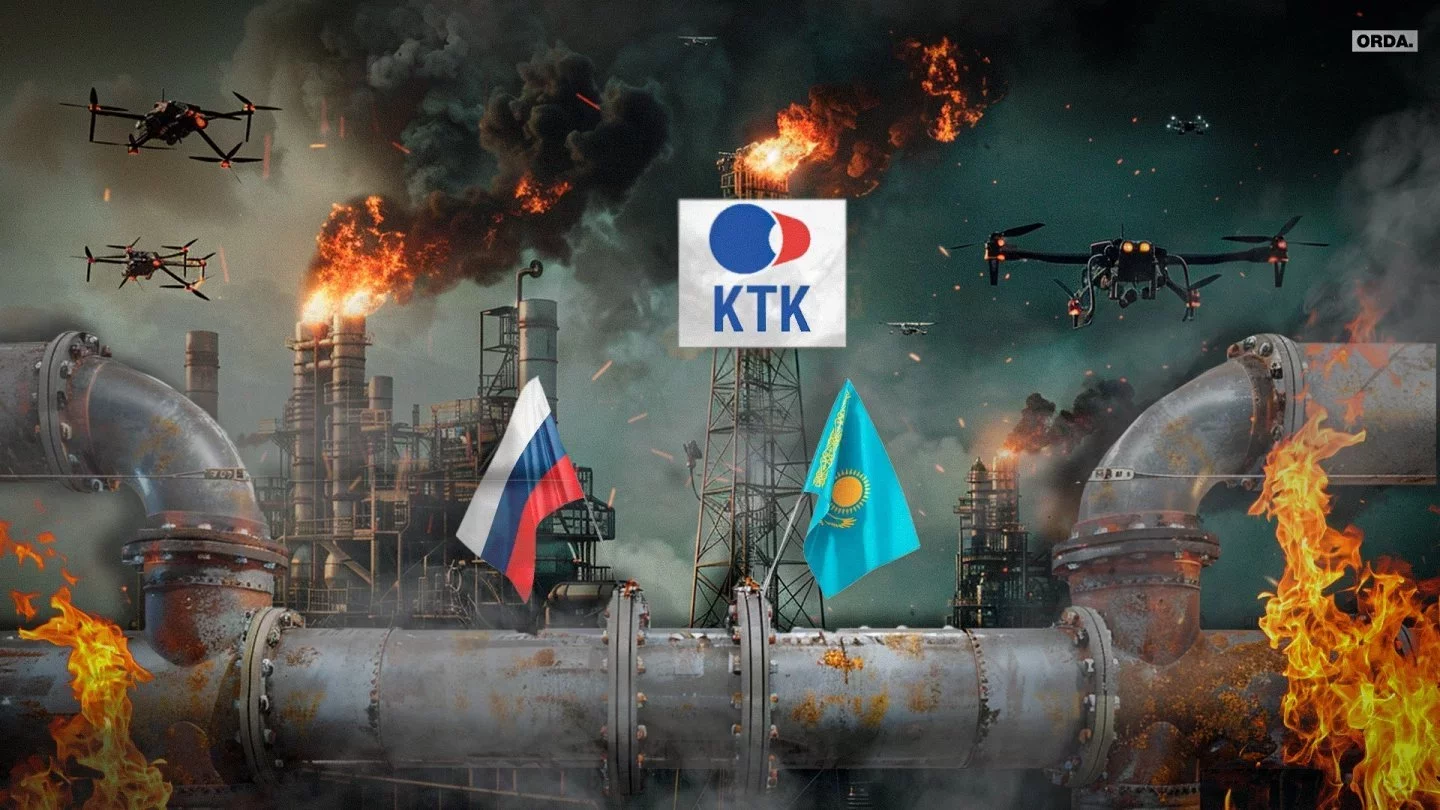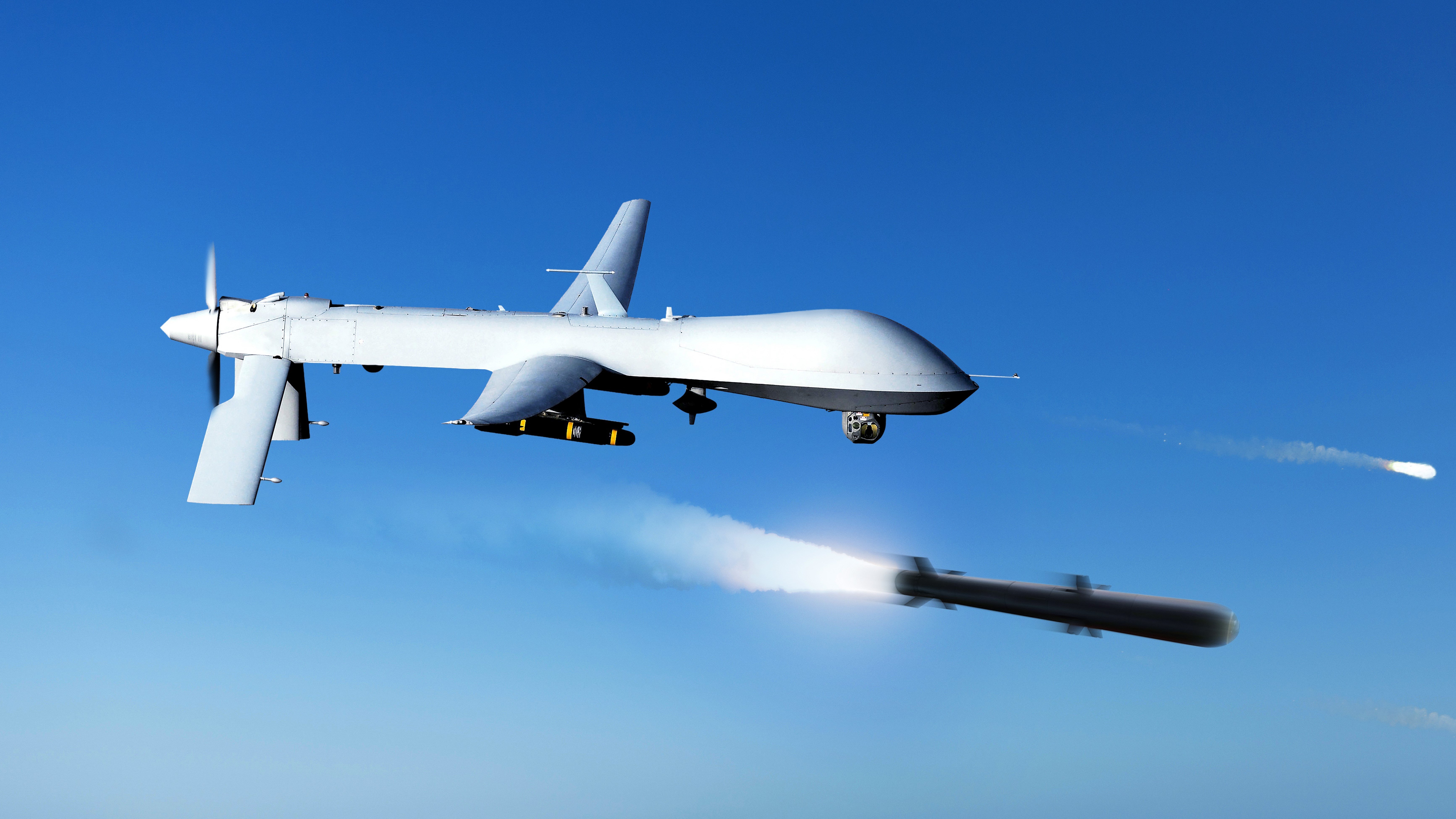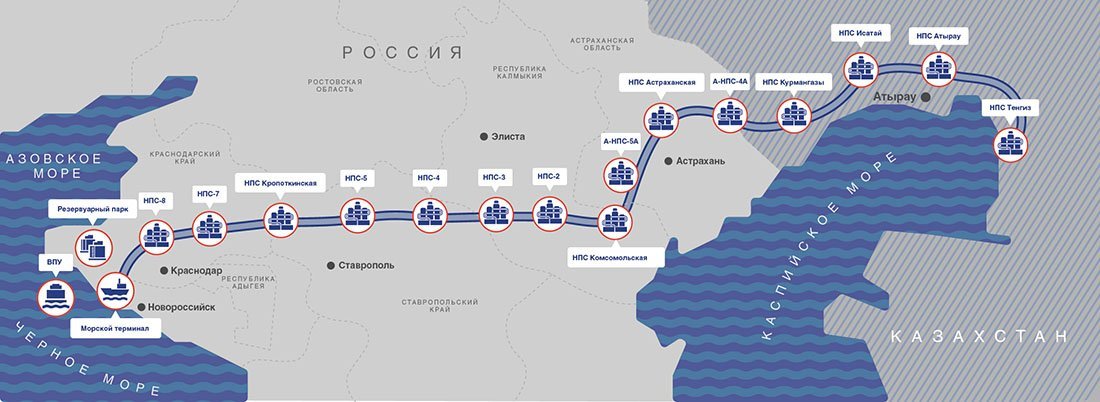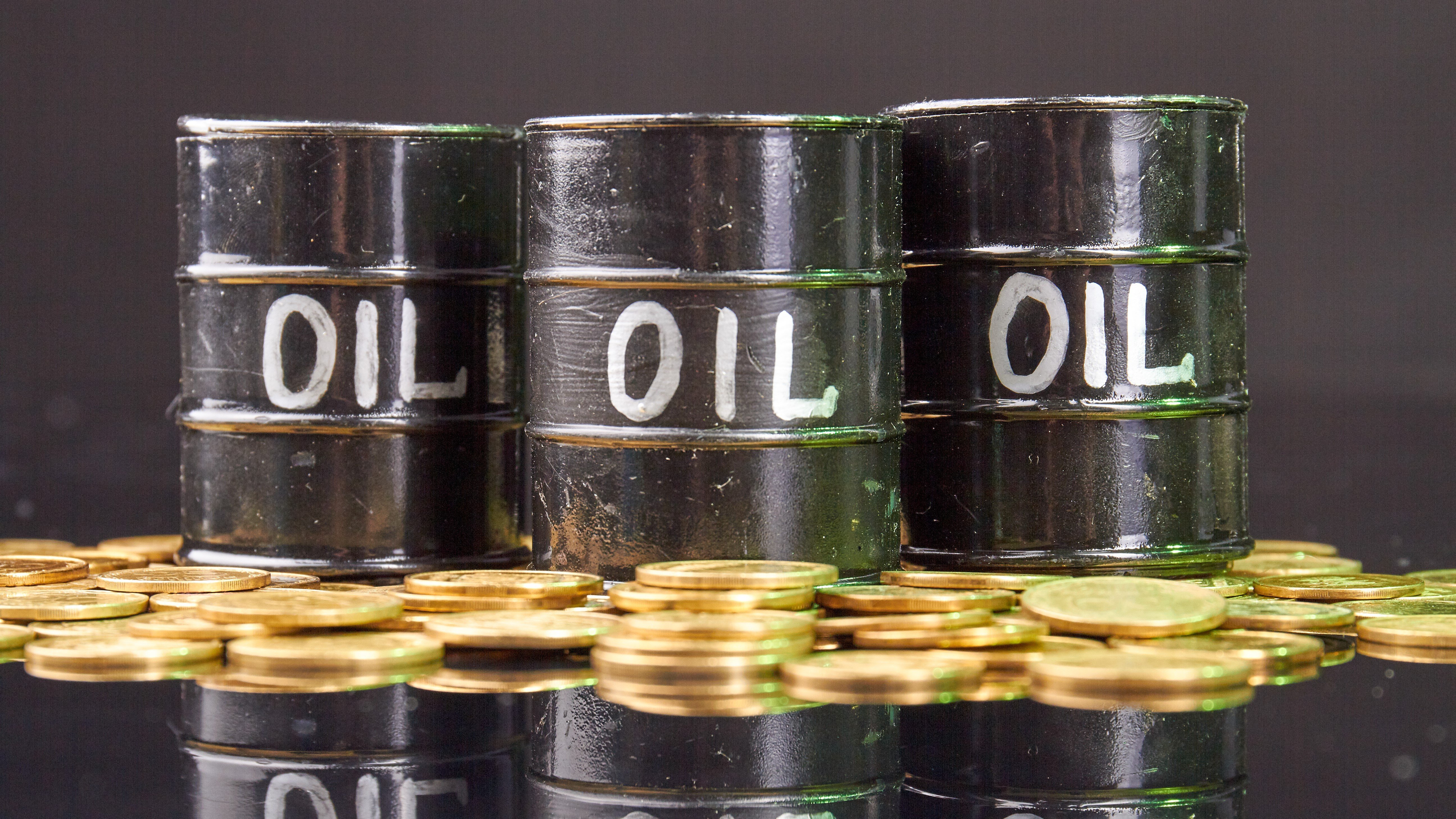Experts Comment on Situation around CPC Drone Attack
 Photo: Orda.kz
Photo: Orda.kz
Ukrainian drones attacked a Caspian Pipeline Consortium (CPC) station through which Kazakhstan's oil from Tengiz is exported.
The Kropotkinskaya station in Russia's Krasnodar Krai is the largest CPC oil pumping facility in the Russian Federation. Seven combat drones carried out the strike, and the station was seriously damaged; operations were suspended.
In Ukraine, the attack was confirmed, and in Russia, a criminal case was opened.
Meanwhile, the official spokesman for the Ministry of Foreign Affairs of the Republic of Kazakhstan, Aibek Smadiyarov, reported in a reserved manner:
This is a very important issue for the economy of Kazakhstan, and we will naturally discuss this situation with our Ukrainian partners through diplomatic channels.
According to CPC, 90% of the oil going through the Kropotkinskaya station is Kazakh crude from Tengiz.

Damage Report...
The roof of the 140,000 cubic meter reservoir at the Kropotkinskaya station was destroyed, the gas turbine unit, cables, and other equipment were damaged, and two transformers, filters, and the fire extinguishing system were destroyed. Repairs will take one and a half to two months, affecting Kazakakhstan's oil export income.
The day after the attack, CPC reported that the shutdown of Kropotkinskaya would result in a 30% drop in Kazakhstan's oil exports. Olzhas Baidildinov, a member of the public council of the Ministry of Energy and founder of the "Baidildinov. Oil Telegram channel," estimated that the country's financial losses would amount to billions of tenge.
According to my calculations, 53.8 million tons of oil from Kazakhstan were transhipped in 2024. Over two months, this volume is about nine million tons. If pumping falls by 30%, this is about 2.7 million tons. In total, as I calculated, the losses for oil companies, for the consortium itself, which will restore this damage, are losses of about two billion dollars. Kazakhstan will lose about 30% of this amount to the budget, that is, about 300 billion tenge. This is an approximate calculation, of course, says Olzhas Baidildinov.
KazMunayGas's income revenue will also take a hit. The national company is also a CPC shareholder, so all the consortium's costs will fall on its shoulders as well.
At the same time, oil price quotes on world markets began to fall.
It would seem that if CPC reduces volumes, this should be reflected in the European market, prices should rise. But oil prices are falling: the market has high expectations that the United States and Russia will reach an agreement, Russian oil will go to European markets in larger volumes, and prices will fall. That is, we can move from one crisis with CPC and its reduced pumping straight into the next crisis, when in two or three months oil prices will fall and could amount to 60-62 dollars per barrel, warns Olzhas Baidildinov.
However, other experts are more reserved in their assessments.
Oil and gas industry analyst Nurlan Zhumagulov points out that the information about a 30% reduction in pumping came from the CPC, while the Ministry of Energy of Kazakhstan has assured that supplies are stable and on schedule. In addition, Russian oil accounts for 15-17% of the CPC system.
"There was also a statement from Chevron, which also said that everything is stable. It is very difficult to calculate the lost profit because the most important thing is not to pump oil but to load it into tankers. And, fortunately, today, the CPC marine terminal is functioning, as are the VPUs, which can pump oil," notes Nurlan Zhumagulov.

Why Kropotkinskaya?
Judging by the damage, the Kropotkinskaya was attacked intentionally:
Why did the Ukrainians attack this station and not another? Why not a tanker being loaded? Of course, it would be better to ask the Ukrainians about this. But I can say that the Kropotkinskaya station is located at a distance from other objects. It could not have been an erroneous, accidentally hit target. The drones were flying at it on purpose.Olzhas Baidildinov.
Oil analyst Artur Shahnazaryan agrees.
He said the strike was selective: on the reservoir and the associated infrastructure. The reservoir was not critically damaged (no oil spill), but the drone operators knew where to hit to cause maximum damage.
At the same time, this attack is notable because the strike was carried out precisely on a specific station part.
The reservoir with the accompanying infrastructure that pumped Russian oil into the CPC pipeline was damaged. That is why the volumes of Kazakhstan's oil transported did not decrease. This was the selectivity. The Kremlin may be deliberately exaggerating, involving Kazakhstan and representatives of American companies in this story, Arthur Shakhnazaryan
Perhaps Kropotkinskaya was the easiest place for drones to reach without falling into the range of Russian air defense systems.
According to Nurlan Zhumagulov, Kropotkinskaya is the station where Kazakhstan's oil going for export "meets" Russian oil. Although there is less of the latter than of the former, to a certain extent, it is an object of Russian energy infrastructure.
Indeed, Russian oil is pumped through this NPS. An interesting coincidence: Transneft says that the gas turbine unit with Siemens turbines was damaged. Transneft has repeatedly stated that this spring it will replace this gas turbine unit with its own, Russian one. It turns out that the stars have aligned, and now it has the opportunity to implement its plans, says Nurlan Zhumagulov.
There are as many as eight Siemens installations at Kropotkinskaya; only one failed.

Alternatives
The attack on the CPC station resurfaces Kazakhstan's dependency on the Caspian pipeline.
A possible alternative is the Baku-Tbilisi-Ceyhan (BTC) pipeline:
KazMunayGas has already begun actively exporting oil via the Baku-Tbilisi-Ceyhan pipeline. KMG stated that in 2025, perhaps 2.2 million tons will already be pumped towards BTC. The Ministry of Energy spoke of one and a half million. We can hope that we will be able to increase the pumping towards Baku a little, but this is a pittance from the total volume of deliveries via CPC. Nurlan Zhumagulov.
The CPC pipeline remains the main option, though:
The question is how much oil from Tengiz can physically flow into BTC. It is a difficult logistical route. Plus, BTC shareholders (and this is also an international consortium, in which Azerbaijan has a share) are not very happy to accept Kazakhstan's oil in large volumes because their Azeri Light grade is better than ours. When we add our 'bad' oil to their pipeline, the product at the end of the pipe is cheaper and of worse quality than the oil produced in Azerbaijan, Olzhas Baidildinov.
It could be possible to increase the capacity of the oil pipelines running from the west to the south of Kazakhstan, but this would take several years.
The same applies to supplies to China via the Atasu-Alashankou pipeline: it is mainly used to pump Russian oil in transit through Kazakhstan.
Alternative options will not appear in one and a half to two months. Most likely, if CPC switches to reduced volumes, large fields will begin to suspend production to compensate for the imbalance. This will also affect the implementation of OPEC+ agreements. Kazakhstan has committed to reducing production - well, now it will report on how great we are, that we compensated for the growth that was in previous months. So there are pros and cons to this, although the cons are more obvious, says Olzhas Baidildinov
Analyst Artur Shakhnazaryan believes Kazakhstan will avoid reducing oil transportation by 30%.
Kazakhstan's oil can be pumped through the BPS (Baltic Pipeline System), although this will be much more complicated in terms of logistics.

A Signal, But for Whom?
Throughout the three years of the Russian-Ukrainian military conflict, the CPC pipeline has remained "above the fray": the international consortium has successfully avoided sanctions and attacks thanks to its American shareholders. The timing is indeed peculiar: the US and Russia have begun negotiations over Ukraine's head.
The Ukrainian drone attack on the Kropotkinskaya oil pumping station is not so much a military as a political act. In my opinion, the Ukrainian authorities, especially the special services, are well aware that the CPC pipeline pumps oil extracted and exported to Europe by Russian oil companies and American giants Chevron and ExxonMobil. Considering the recent statements and actions by President Donald Trump and other US officials regarding Ukraine, which are clearly perceived by the latter's authorities as unfriendly, the military action in question by Kyiv is addressed primarily to Washington, says political scientist Andrey Chebotarev, director of the Alternative Center for Current Research.
The goals of this show attack could have been several:
Perhaps this is a hint from Ukraine to the American side that the Ukrainians can harm the United States if their interests are not taken into account in the negotiations. Olzhas Baidildinov.
At the same time, Ukraine would hardly dare to go into open conflict with the US, Andrey Chebotarev points out:
If anything happens, Ukraine can refer to the military, represented by drone operators, not knowing the political and economic nuances of the CPC's activities. It is unlikely that this situation will influence the US to start taking Ukraine's interests into account more in the process of its negotiations with Russia. Andrey Chebotarev.
How will Kazakhstan behave? Conversations with "Ukrainian colleagues" are inevitable.
In this situation, Kazakhstan could simply, as they say, 'be in the crossfire.' Although, on the other hand, as a military-political ally of the Russian Federation, it could also have been sent a certain signal to get the Kazakh authorities to reduce the level of cooperation with Russia in certain areas. In any case, the attack on the CPC creates serious risks for our country's economy. Therefore, the Ministry of Foreign Affairs of the Republic of Kazakhstan has already announced a discussion of this situation with Ukraine through diplomatic channels. It is unlikely that this will be done in the form of a note. Most likely, the matter will be limited to negotiations between representatives of the foreign policy departments and will not lead to a deterioration in relations between the two countries, predicts Andrey Chebotarev.
Kazakhstan will react if further attacks occur.
Kazakhstan imports Russian oil products, and if its northern neighbor suddenly experiences a deficit, this will affect Kazakhstan.
Qasym-Jomart Toqayev's calls to finally resolve the conflict through diplomacy, not weapons, are more timely than ever.
The impact on the economy may not be that big if the plant is restored quickly. But Ukraine has said it reserves the right to strike energy infrastructure, and if such strikes continue, it will naturally have negative consequences for Kazakhstan, concludes Olzhas Baidildinov.
Original Author: Nikita Drobny
Latest news
- 2,500 Participants from 22 Countries: Almaty Opens the Running Season
- Snow and Frost: Weather Forecast for February 15
- Tokayev congratulates Serbia’s President Vucic on Statehood Day
- Mikhail Shaidorov Wins Kazakhstan’s First Winter Olympic Gold Since 1994
- Indian Crested Porcupines Spotted by Camera Trap in Ile-Alatau National Park
- Kazakhstan’s Air Pollution Isn’t Driven by Factories — Ministry of Ecology
- How the US Views Kazakhstan’s Constitutional Reform and Free Speech
- US Ambassador to Kazakhstan: Visa Restrictions for Kazakhstanis Are a Temporary Measure
- China-to-Russia Shipments Are Increasingly Bypassing Kazakhstan
- Shokan Ualikhanov Private School Reclassified as Large Business After Staff Tops 250
- Former Priest Yakov Vorontsov Reportedly Detained in Kazakhstan
- Kazakhstan Proposes Differentiated Toll Rates for Transit Foreign Drivers
- World Bank Ready to Provide Kazakhstan Up to $1 Billion a Year for Six Years
- Woman Forced to Move and Change Jobs Repeatedly as Ex-Husband Stalked Her
- Kazakhstanis Are Getting Married Less Often
- Why Online Voting Isn’t Coming for the 2026 Referendum
- Mephedrone lab network uncovered in Almaty’s private houses
- Kazakhstan’s Domestic Trade Slows in January
- A Man Spent Six Months in Jail for Nothing — Court Awards Millions from the State
- Over 100M Tenge in Budget Money Allegedly Spent on Gambling in West Kazakhstan

